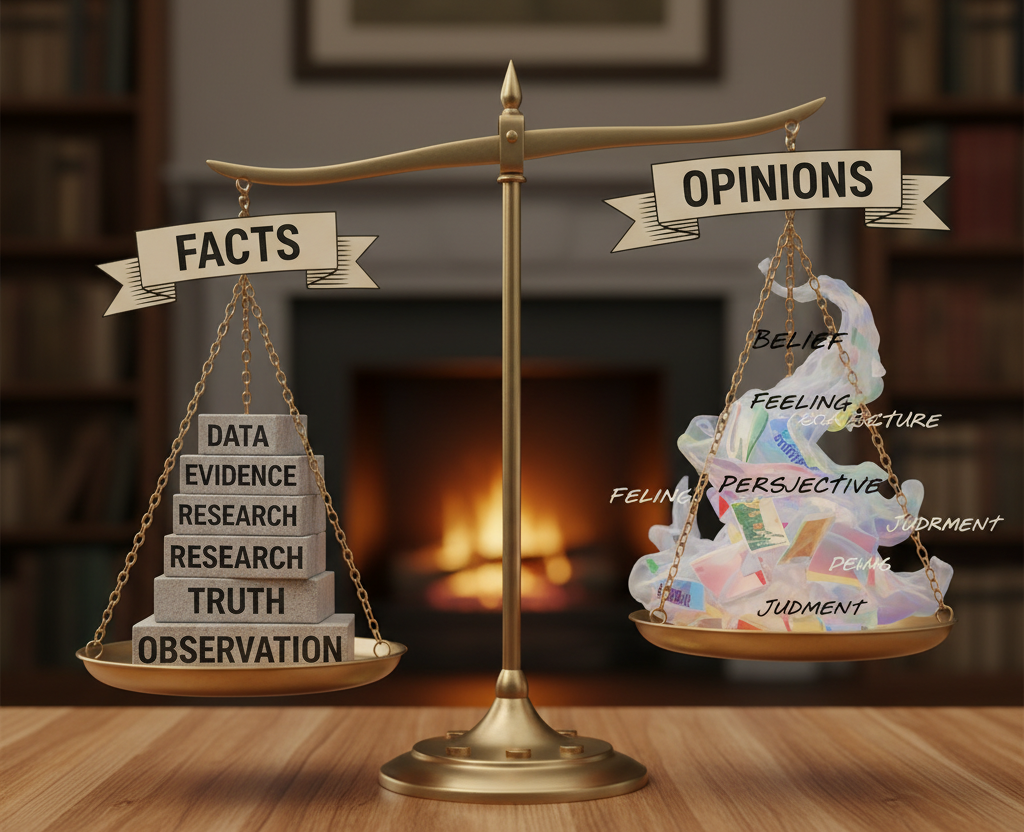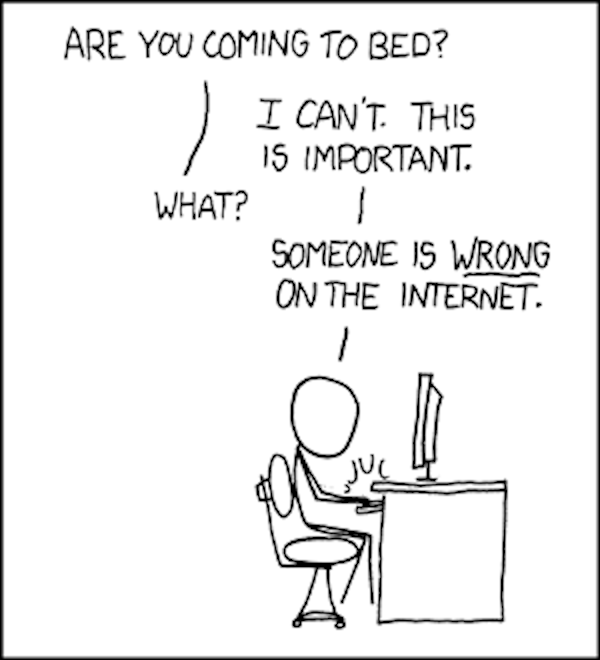
A while back, I wrote a blog post called How We Disagree Matters. In that post, I pointed out that it’s okay to disagree with people as long as you can do so respectfully.
I still stand by that post. But now let’s look at it from another angle. Sometimes the person is just wrong. It’s one thing to think, for example, that Mondays are terrible or that they are wonderful. Those are both opinions held by various people, and there’s no point in arguing them.
But Facts, On the Other Hand…
But let’s say that someone says Americans have an average of 3 children per household. That’s objectively wrong. (I don’t think anyone is saying it, which is why I used it as an example.) Is it wrong to correct mistakes and errors like this? For example, take this meme:

I will admit I sometimes struggle with this. If I see an opinion about something online that I disagree with, I just scroll on by most of the time. It’s not worth it to me to argue about opinions.
But sometimes I see a post that contains blatant falsehoods, egregious mischaracterizations, or distorted, exaggerated data. If it is posted by a stranger, I may or may not bother to respond. If other strangers have already fact-checked it, I may not bother. But if a friend posted it, especially a friend I care about, I will often take a few moments to comment. I may even ask ChatGPT to help me find some reliable data to disprove the falsehood. Because I care about my friends.
It’s Not Just One-Sided
This has happened many times. Certain friends just never bother to reply. Usually, they are those who have different views on the topic than I do. I do remember once a friend thanking me for the correction. She and I actually do see eye to eye on a lot of things, and when I pointed out that what she said was just wishful thinking and not factual, she thanked me and took it down.
This made me think. A lot of people will share things that they believe without fact-checking them. But most of the time, I try to fact-check things I think or wish were true—things I would be happy to see if they were true—and not just believe them because they align with my belief system. Why? Because I value truth above ideology. And I wish more people did.
I have even had people fact-check me or point out an inconsistency in what I shared. When this happens, I make a point to thank them and change or take down what I had posted.
How You Respond Matters
All this to say, how you respond to disagreement matters just as much as how you disagree. When someone says that something you posted is factually incorrect, do you ignore them? Do you argue? Or do you thank them?
As they say, “A word to the wise is sufficient.”
